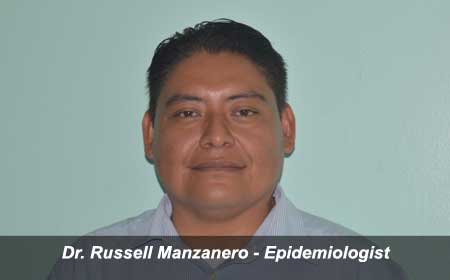BELIZE CITY, Tues. July 11, 2017–According to the Zika update published by UNICEF on July 10, although the trend of reported new cases in Central America continues to decrease, Belize is an exception.
The anomaly here might be the result of a changing testing regimen, which has seen more samples sent to neighboring Mexico for analysis, and a spike in Zika cases in northern Belize recorded since last November. Previously, Belize, unable to test for Zika in-country, had accessed limited testing assistance for high-risk cases from the Caribbean Public Health Agency (CARPHA) in Trinidad and Tobago.
2 babies born with microcephaly in Corozal after Zika cases spike in the north
Beyond the assistance from Mexico, a medical alliance of professionals from the USA has teamed up with officials here under a 5-year project intended to study Zika and other arbo-viruses in Belize, namely Dengue and Chikungunya. According to Director of Health Services, Dr. Marvin Manzanero, donated blood collected from the various regional hospitals (reflecting samples from across Belize) was tested as a part of the exercise and Zika was found at a prevalence of 5% – near the prevalence rate of the wider Belize population.
Just prior to our interview, the DHS was in a session at the Karl Heusner Memorial Hospital (KHMH) in Belize City where the first set of results for 370 samples from blood donors, taken in April, was discussed. Another batch of 550 results is pending for October 2017.
On Zika’s initial emergence in Belize around April/May 2016, the country was unable to get a comprehensive picture of the state of Zika infections, since most cases were just being listed as suspected, with only a few being actually confirmed.
To further complicate matters, it has been said in official health circles that the vast majority of people who contract the Zika virus do not show symptoms, but that does not mean that adverse health effects cannot result. In the case of pregnant moms, their babies can be born with neurological problems and a condition known as microcephaly – a smaller than normal head for the baby’s size; and in the case of adults, it can lead to a type of paralysis known as the Guillian-Barré syndrome.
Since the year began, two cases of microcephaly have emerged in Corozal, although the cases are said to not be severe, according to epidemiologist Dr. Russell Manzanero.

According to the DHS, Chikungunya does not appear to be prevalent in Belize, and Dengue infections are relatively low; although this is expected due to the cyclical patterns of rise and fall in cases seen about every two years, he said.
It was reported in a news release issued this Monday by the University of Notre Dame that the Eck Institute for Global Health is undertaking a 5-year study in Belize – a study which, it said, “will put Belize on the frontline of determining what’s going on in its country,” since the extent of the spread of Zika in Belize is still unknown, with cases going unreported.
The 5-year project—a partnership between the university, the Mayo Clinic, the Belize Ministry of Health and the Belize Vector and Ecology Center (based in Orange Walk)—also aims to strengthen Belize’s diagnostic capability to accurately and efficiently identify Zika cases here.
Under the project, surveillance will also include the mapping of locations with confirmed cases, positive mosquito pools, as well as an analysis of transmission dynamics, the news release said.
The DHS told us that not only are the project collaborators looking at the occurrence of arbo-viruses, but also other pathogens common in the US, such as those causing equine encephalitis (a horse disease which can affect humans by causing brain inflammation) and rickettsiosis, a debilitating febrile illness which may be transmitted by ticks.
He said that the initiative began with the work of US students at the Belize Vector Ecology Center who were coming to Belize to study vector control. There was an initial Memorandum of Understanding with the Mayo Clinic and the University Of Notre Dame. They applied for project funding, which gave rise to the initiative currently afoot in Belize.
The DHS said that it is anticipated that the information gleaned from the study will help the Ministry of Health to craft its response.
Dr. Russell Manzanero told our newspaper that although Belize is currently doing more tests in Mexico, and thereby confirming more cases of Zika, there are still cases of fever-rash illnesses which have been shown through testing to be negative for the known arbo-viruses circulating in Belize. According to the epidemiologist, Belize has confirmed over 800 Zika cases since last November, with 20% of the suspected cases sent testing positive for Zika; still, he said, they are getting a large number of cases that have not been associated with the arbo-viruses.
When Zika first emerged in Belize, he said, the places where it was showing up happened to be same areas that were known as “hot spots” for Dengue: locations in the Cayo and Belize Districts; but now, he said, there has been an upsurge in Corozal.
Most of the transmissions are believed to be via the mosquito vector, but the virus can also be sexually transmitted between partners or transmitted from mother to child (MTC), although MTC transmission could have occurred in the case of the two microcephaly cases emerging in northern Belize.
This is not the first time that microcephaly has been reported in Belize. Last September, we had reported based on information from the Ministry of Health that there were 3 cases reported, which had not been linked to Zika but to other birth complications.

